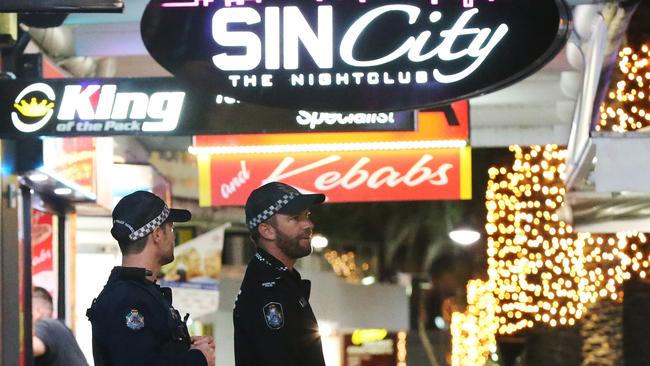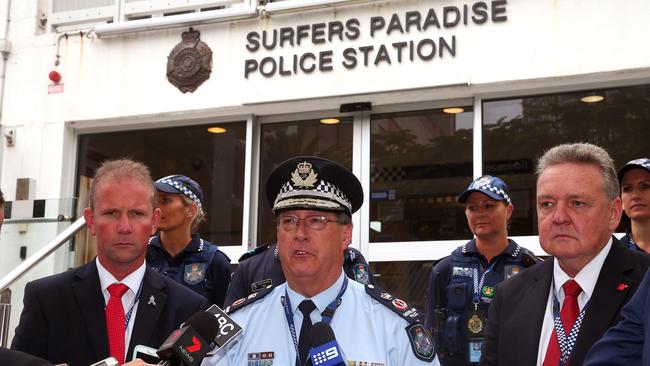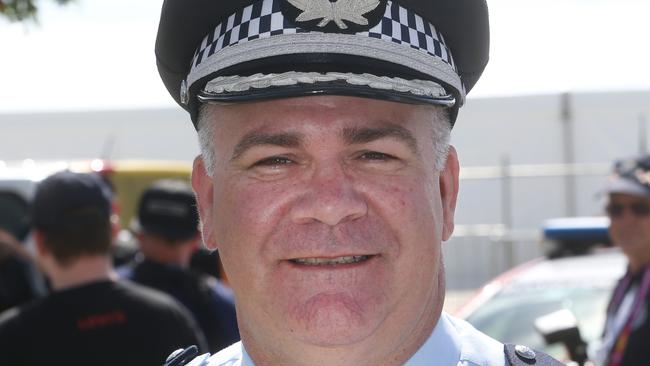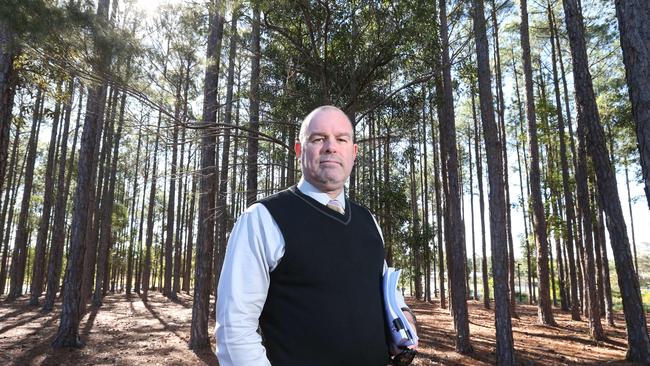Why new top Gold Coast cop faces tough gig on streets of the Glitter Strip
ASSISTANT Commissioner Brian Wilkins is confronting a Glitter Strip fighting an ice epidemic and low morale among his troops on the ground about higher management.

Crime and Court
Don't miss out on the headlines from Crime and Court. Followed categories will be added to My News.
NEW top Gold Coast cop Brian Wilkins is confronting a Glitter Strip fighting an ice epidemic and low morale among frontline troops about higher management.
Commissioner Ian Stewart yesterday announced the Coast leadership change as one of three new appointments.
Commissioner Stewart told the Bulletin in December that he stood by his Coast leadership group, but reports in the new year predicted Commissioner Codd would be moved after the Commonwealth Games.

In the past 12 months, Coast policing has been rocked by the following:
* The arrest of top cop Michelle Stenner who was charged with three counts of perjury and one count of misconduct in relation to public office.
* Fifteen police officers facing internal investigation for alleged corruption and misconduct after the Crime and Corruption Commission investigated complains about dodgy crime data and bullying.
* A revolving door police leadership caused by Gold Coast Chief Superintendent Terry Borland taking extended leave.
* A staffing crisis with as many as 11 of the 24 cops in stations such as Runaway Bay on sick leave, carer’s leave or pending investigation.

Many police on the beat applauded Assistant Commission Codd for his strong support of mental health issues and attempt to improve weekend rostering.
But he faced rebellion within the ranks from Surfers Paradise officers not wanting to be relocated to Coomera during the week nights to patrol youth gangs and hoons.
The disappearance of Supt Borland, charges laid against Supt Stenner and the CCC probe meant the State Opposition put a relentless spotlight on Coast policing.
Bond University criminologist Dr Terry Goldsworthy yesterday called on the senior ranks of the Coast police to engage with the community.

“The most important thing I think police need to do is to engage with the public and get out there and tell them what’s happening with crime and what they’re doing about it,” Dr Goldsworthy said.
While police appeared to be “happy enough” with their work the confidence in management was “quite low”.
Dr Goldsworthy said latest crime figures, for the period October 2016 to March 2018, showed an increase in drug-related crime.
Compared to the previous 12 months, robbery has increased by 18 per cent and stolen vehicles by 20 per cent.
Drug offences for the Coast region had decreased by 15 per cent, from 4500 cases to 3807.


